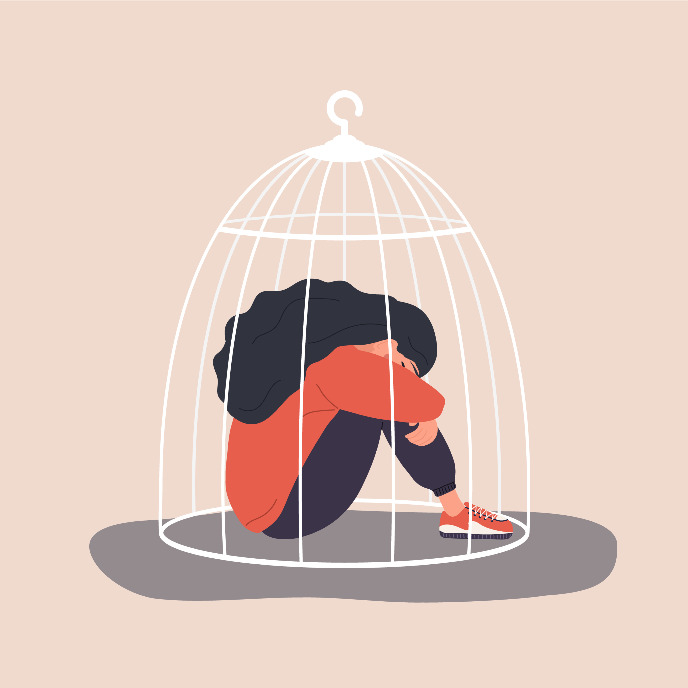Niet alleen maar een tekort aan stofjes
Steeds meer mensen met een depressie zoeken professionele hulp. Op zich een positieve ontwikkeling, vindt hoogleraar psychologie Peter de Jonge, maar niet als dit betekent dat zij zich hierdoor minder verantwoordelijk voor hun eigen herstel gaan voelen.
Ellen DeGeneres. René van der Gijp. Jim Carrey. Prins Harry. Het zijn slechts een paar voorbeelden van bekendheden die in de afgelopen jaren in de media over hun depressie hebben verteld. Ook op social media zie je deze trend: mensen delen daar vaker dat ze depressief zijn (geweest). Een positieve ontwikkeling, maar volgens Peter de Jonge − hoogleraar psychologie en expert op het gebied van psychische stoornissen − is er ook keerzijde: doordat het stigma op depressie afneemt, kloppen mensen sneller bij de GGZ aan. En dat is gezien de lange wachtlijsten reden tot zorg.

Sneller hulp
De Jonge: “In de afgelopen jaren is het makkelijker geworden om over psychische aandoeningen te praten. Dat is mooi. Maar tegelijkertijd zien we ook dat mensen hierdoor sneller professionele hulp inschakelen en zich minder verantwoordelijk voor hun eigen herstel voelen. Vroeger dacht men: ik heb een probleem en ik moet dat accepteren of er iets aan doen. Nu denkt men: ik heb een depressie, dus moet ik hulp zoeken. Die toegenomen hulpvraag brengt maatschappelijke kosten met zich mee.”
Vroeger dacht men: ik heb een probleem en ik moet dat accepteren of er iets aan doen. Nu denkt men: ik heb een depressie, dus moet ik hulp zoeken.
Medisch probleem
De hulpvraag nam volgens de Jonge ook toe door de medicalisering van depressie. “Een populaire opvatting is dat een depressie veroorzaakt wordt door een chemische disbalans in je hersenen. Dat betekent dat het niet jouw ‘schuld’ is en je het op kunt lossen met pilletjes.” Dat vindt de Jonge te kort door de bocht. “Er is meestal niet één oorzaak voor psychische aandoeningen. Bovendien speelt de context ook een belangrijke rol. Tijdens stressvolle transities zoals de geboorte van je eerste kind of het krijgen van een nieuwe baan loop je meer risico.”
Belangrijk signaal
Als je een depressie puur ziet als een medisch probleem waar je zelf maar weinig invloed op hebt, mis je een belangrijk signaal, vindt de Jonge. Namelijk: het signaal dat er iets moet veranderen. “Als het goed is, vertellen je emoties wat er niet lekker loopt in je leven.” De Jonge adviseert mensen die depressief zijn dan ook om het onderliggende probleem goed te onderzoeken en te kijken of er toch iets aan te doen is, “hoe moeilijk en pijnlijk dat ook kan zijn”.
Als het goed is, vertellen je emoties wat er niet lekker loopt in je leven.
Klimaatstress
De Jonge: “Veel mensen hebben bijvoorbeeld last van klimaatstress. Je kan dat niet oplossen door te zeggen: hier heb je een pilletje dan voel je je niet meer zo gestresst over het klimaat. Beter is het om jezelf vragen te stellen als: is mijn reactie proportioneel, hoe kan ik toch nog van het leven genieten en − misschien wel de belangrijkste vraag − wat kan ik doen om mijn bijdrage aan het klimaat te leveren?”
Elkaar helpen
Professionele zorg is in bepaalde situaties zeker nodig, maar mensen met een depressie kunnen dus ook zelf dingen doen om hun klachten te verminderen, stelt de Jonge. Daarnaast ziet hij een belangrijke rol weggelegd voor de omgeving van degene die depressief is. “Je familie en je vrienden zien de situatie soms veel helderder dan dat jij dat doet. Als we elkaar helpen, dan is dat bovendien een stuk beter te behappen dan wanneer alles in de formele zorg terechtkomt. Psychische stoornissen zijn immers zowel een persoonlijk als een maatschappelijk probleem.”
Meer nieuws
-
17 februari 2026
Van ghostbuster tot rampenonderzoeker
-
03 februari 2026
‘Daar zit een goeie kop op’
-
20 januari 2026
Alcohol, appen en e-bikes


